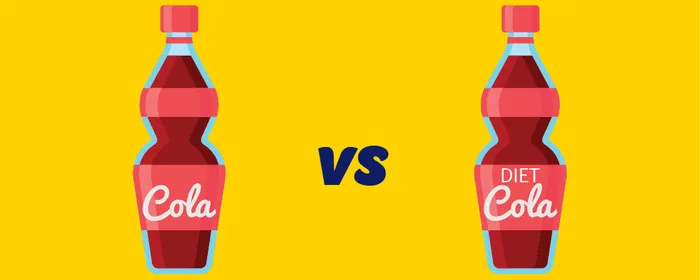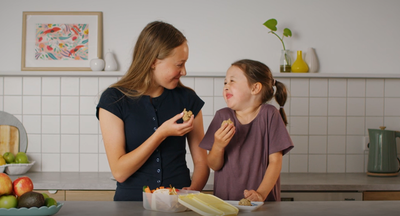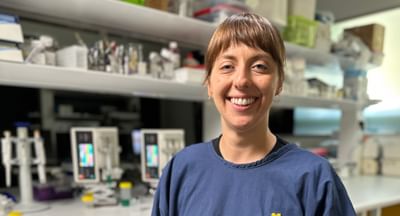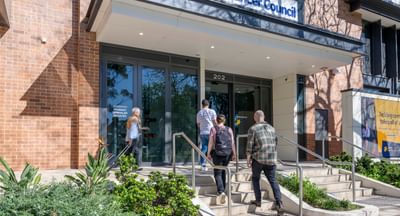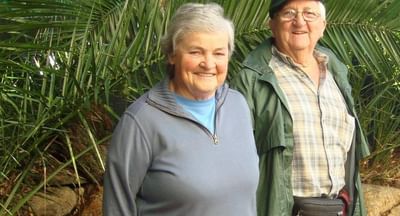Sugary drinks are very low in nutritional value. We know that regularly drinking them can cause tooth decay in the short-term and health problems like gestational and type 2 diabetes, kidney stones, chronic kidney disease, heart disease and obesity-related cancers in the long-term.
But what about the alternatives? ‘Diet’ or ‘sugar-free’ drinks still taste sweet and new data shows South Aussie teenagers are sipping more than ever before. But are they healthier? Let’s see.
First, why are sugary drinks bad for you?
The average 600ml bottle of soft drink contains 16 teaspoons of sugar. This means they exceed the World Health Organisation’s recommendations for sugar, they offer no nutritional value, plus they’re acidic which is bad for your teeth.
Sneakily, drink companies have found a way to partially overcome this concern. They use artificial sweeteners to sweeten beverages as a sugar replacement.
Who consumes the most ‘diet’ drinks in South Australia?
According to the latest South Australian Population Health Survey, almost 1 in 4 teenagers aged 15 to 17 years (24.2%) reported drinking sugar-free soft drink, sports drinks and energy drinks every day.
The proportion of South Aussie teens sipping sugar-free drinks increased by seven per cent from the previous survey to claim the top spot from adults aged 30-49 years.
It’s unclear from the data if teenagers are purchasing their own sugar-free drinks to be healthier, or if the drinks were purchased by parents and available to drink at home.
The data does however show that this age group were also the highest consumers of sugary soft drinks, energy drinks and sports drinks, with around 1 in 5 (21%) reporting to drink them daily.
Are sugar-free drinks healthy?
Sugar-free and ‘diet’ drinks are cleverly marketed to appear to be better for you than their sugary versions. In reality, they keep you hooked to their sweetness, they offer zero nutrition and they’re acidic, which can lead to tooth erosion and dental cavities.
The artificial sweeteners used in these drinks are synthetic chemical compounds that provide very few kilojoules and taste intensely sweeter than sugar.
There are several types of artificial sweeteners including aspartame, sucralose, cyclamate and saccharin, all of which are approved and regulated by the Food Standards of Australia and New Zealand (FSANZ).
There’s concern about the healthiness of these artificial sweeteners and here’s what the evidence says:
A recent review by the World Health Organisation found replacing sugars with intense low-calorie sweeteners may be associated with increased risk of type 2 diabetes and cardiovascular diseases.
There is limited evidence to suggest that the artificial sweetener, aspartame, often used in ‘low-sugar’ and ‘diet’ drinks, and other products like confectionery, and yoghurt, causes cancer.
The World Health Organisation’s International Agency on Research on Cancer classified aspartame, as ‘possibly carcinogenic to humans’. This is based on limited evidence that consumption of aspartame is associated with an increased risk of liver cancer.
There is no current evidence to suggest that other artificial sweeteners found in ‘diet’ drinks cause cancer.
What does this mean?
Aspartame has been found to be a possible cause of liver cancer in humans, but only when consumed in high amounts.
The current acceptable daily intake of aspartame is 40 mg of aspartame per kilogram of body weight per day.
For example, for a can of diet soft drink containing 200 mg of aspartame, a person weighing 70 kg would need to consume more than 14 cans per day to exceed this limit, assuming no other aspartame was consumed from other foods.
Thankfully, research shows most Australians are consuming well below the acceptable daily intake for aspartame.
Food supply in Australia is strictly regulated and the intense sweeteners used in Australia have not been found to increase the risk of cancer in the amounts currently consumed. Additionally, a recent survey (2019) found that the use of aspartame in Australian food and drink products has decreased.
In Australia, FSANZ sets acceptable levels for all types of additives including artificial sweeteners, which are allowed to be used in drinks. These levels are regularly reviewed and adjusted by FSANZ according to the evidence to ensure our safety.
Is it better to drink sugar-free drinks or drinks with sugar?
Cancer Council SA does not recommend swapping sugary drinks for ‘diet’ or sugar-free drinks.
Although ‘diet’ drinks do not contain the same level of kilojoules as their sugar-sweetened counterparts, they offer zero nutritional value and some studies even link the intense sweetness of artificial sweeteners to stronger cravings for sweet foods and drinks.
‘Diet’ soft drinks and sugar-free versions of popular energy drinks and sports drinks are still acidic, which can lead to tooth erosion and dental caries.
For teenagers and children, these sugar-free alternatives can replace healthier options like water and plain milk, during a peaking time of growth and development.
We recommend drinking tap water or low-fat milk. Water is the best option for hydration and low-fat milk provides important nutrients such as calcium and protein, which supports healthy bones and teeth.
At the end of the day, water is naturally sugar free… since forever!
Cancer Council SA’s new ‘Water. It’s flippin’ good for you’ campaign aims to encourage South Australian teens to drink more water instead.
References
- Cancer Council Australia 2023. Information sheet: Intense sweeteners and cancer risk. Available at: https://www.cancer.org.au/about-us/policy-and-advocacy/prevention-policy/national-cancer-prevention-policy/obesity/related-resources/intense-sweeteners-and-cancer-risk
- Food Standards of Australia and New Zealand (FSANZ) 2021. Intense Sweeteners. Available at: www.foodstandards.gov.au/consumer/additives/pages/sweeteners.aspx
- Hector et al 2009. Soft drinks, weight status and health: a review. A NSW Centre for Public Health Nutrition (now known as Cluster of Public Health Nutrition, Prevention Research Collaboration, University of Sydney) project for NSW Health, 2009.
- Richard, A and Smith, G 2020. Artificial sweeteners vs sugar. CHOICE. Available at: choice.com.au/food-and-drink/nutrition/sugar/articles/sweeteners
- World Health Organization 2015. Guideline: sugars intake for adults and children. Available at: www.who.int/publications/i/item/9789241549028
- World Health Organization 2023. Aspartame hazard and risk assessment results released. Available at: https://www.who.int/news/item/14-07-2023-aspartame-hazard-and-risk-assessment-results-released
- World Health Organization 2023. WHO advises not to use non-sugar sweeteners for weight control in newly released guideline. Available at: https://www.who.int/news/item/15-05-2023-who-advises-not-to-use-non-sugar-sweeteners-for-weight-control-in-newly-released-guideline
